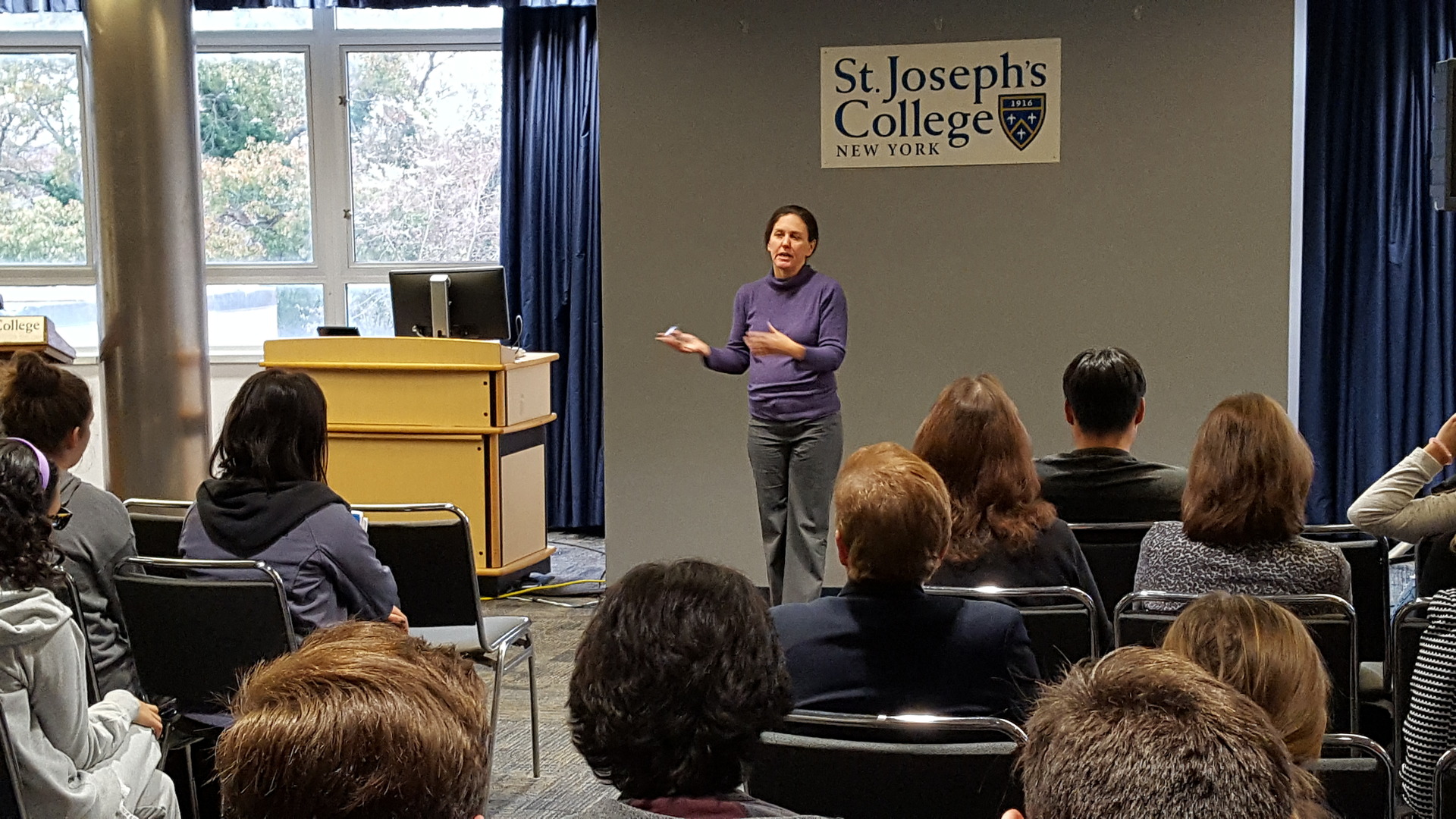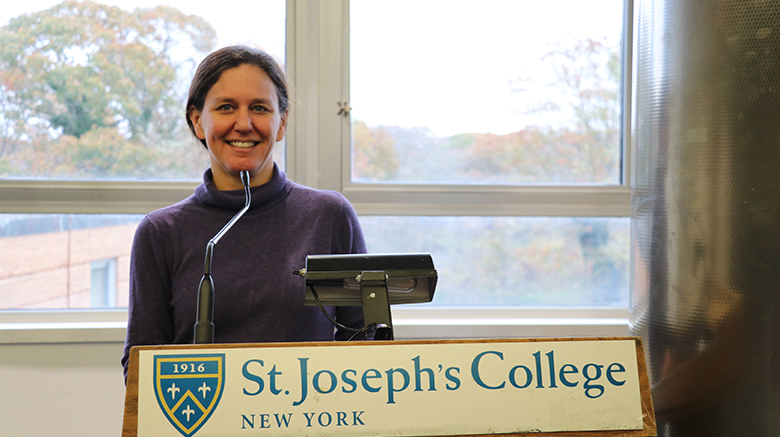In college, Deborah Horan dreamed of going to law school. She never imagined working as a Middle East correspondent for the Chicago Tribune or the Houston Chronicle.
While working for a law firm, Horan started reading Thomas Friedman’s book “From Beirut to Jerusalem.” Envious of Friedman’s career traveling the Middle East as a journalist, Horan’s aspirations quickly changed.
“I quit my job at the law firm and decided to get my master’s degree in journalism,” said the internationally renowned journalist, writer and Middle East expert during a Woodrow Wilson Visiting Fellow lecture Tuesday in SJC Long Island’s McGann Conference Center.
But following in Friedman’s footsteps didn’t end there.
“I got a three-month internship in Jerusalem, and I ended up staying for eight years,” Horan said.
 In addition to Jerusalem, she also reported from Iran, Iraq, Syria, Egypt and Lebanon, spending more than a decade in the Middle East. Her main areas of interest are Iran, Iraq, the Israeli-Palestinian conflict, Arab media, women in the Middle East and journalism’s changing economic environment.
In addition to Jerusalem, she also reported from Iran, Iraq, Syria, Egypt and Lebanon, spending more than a decade in the Middle East. Her main areas of interest are Iran, Iraq, the Israeli-Palestinian conflict, Arab media, women in the Middle East and journalism’s changing economic environment.
Of her time spent in the Middle East, a lot of people ask Horan what it was like covering news as a woman in Middle-Eastern countries.
“I wasn’t subjected to the rules of the culture because I was a foreigner,” she said. “I never had anyone say they wouldn’t meet with me because I’m a woman. I actually had more advantages than my male colleagues because men weren’t allowed into some women-only areas.”
Woodrow Wilson Fellow Deborah Horan will lead a discussion on women in the Middle East at SJC Brooklyn tonight, Nov. 16, at 5:30 p.m. in Tuohy Hall.
While explaining that her own freedom wasn’t restricted as a woman in the Middle East, Horan also noted that, specifically in Iran, women weren’t experiencing limitations to the extent that a lot of people in the West believe.
“What I found is women have a lot of freedom in certain capacities,” she said. “They’re the majority of college students. I met women getting Ph.D.’s and becoming physicians. I met a female lawyer who wants to try to change the way laws about marriage, divorce and rape are interpreted.”
Two illuminating articles that resulted from her time in Iran examine the ways political and cultural changes led to alterations in the behavior of Iranian women.
“The article in Iran examined all of the political changes taking place under President Khatami, and I started it by talking about a group of young women at a political rally excited to see a famous male actor walk into the arena,” Horan said. “They screamed and jumped up and down like American teenagers at a Justin Bieber concert.”
The other article focuses on a group of women in Iran that enjoy hang-gliding.
I got a three-month internship in Jerusalem, and I ended up staying for eight years.” –Deborah Horan, Woodrow Wilson Visiting Fellow
When a student asked Horan, out of all the places she visited, where she would recommend others to visit, she said Iran.
“It’s one of the most beautiful and interesting places I’ve ever been,” she said. “It’s really diverse. It has the Caspian Sea, with all these beautiful colors. They have 15 different kinds of pistachios! You can see women making intricate Persian rugs. There are all these beautiful mosques with gorgeous architecture.”
Horan did acknowledge that her view of Iran could have been affected by the people with whom she spent her time, seeing the country through their eyes.
“My big takeaway is that the Middle East as a whole is a very diverse place,” she said. “There are a lot of different opinions there. If there weren’t, they wouldn’t be fighting.”

